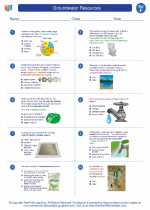Antibiotics
Antibiotics are medications used to treat bacterial infections. They work by either killing bacteria or preventing their growth. It is important to use antibiotics only when prescribed by a healthcare professional, and to complete the full course of treatment to ensure that the infection is completely eradicated.
Types of Antibiotics
There are several classes of antibiotics, each with its own mechanism of action. Some common types of antibiotics include:
- Penicillins: These antibiotics interfere with the production of bacterial cell walls, leading to the rupture of the bacterial cells.
- Cephalosporins: Similar to penicillins, cephalosporins also disrupt the synthesis of bacterial cell walls.
- Tetracyclines: These antibiotics inhibit protein synthesis in bacteria, thereby preventing their growth.
- Macrolides: Macrolide antibiotics interfere with bacterial protein synthesis, leading to the inhibition of bacterial growth.
- Fluoroquinolones: These antibiotics target bacterial DNA replication, ultimately leading to the death of the bacteria.
How Antibiotics Work
Antibiotics target specific components or processes within bacterial cells, disrupting their normal function and ultimately killing the bacteria or inhibiting their growth. For example, some antibiotics interfere with the production of bacterial cell walls, while others disrupt protein synthesis or DNA replication within the bacteria.
Antibiotic Resistance
Overuse and misuse of antibiotics can lead to the development of antibiotic-resistant bacteria. This occurs when bacteria evolve and adapt to withstand the effects of antibiotics, making the medications less effective in treating infections. It is important to use antibiotics judiciously and as prescribed by a healthcare professional to help prevent the emergence of antibiotic-resistant bacteria.
Study Guide
- What are antibiotics and how do they work?
- Identify and explain the mechanism of action of three different classes of antibiotics.
- Why is it important to complete the full course of antibiotic treatment?
- What is antibiotic resistance and how does it occur?
- Discuss the importance of using antibiotics only when prescribed by a healthcare professional.
◂Science Worksheets and Study Guides Sixth Grade. Groundwater Resources

 Worksheet/Answer key
Worksheet/Answer key
 Worksheet/Answer key
Worksheet/Answer key
 Worksheet/Answer key
Worksheet/Answer key
 Vocabulary/Answer key
Vocabulary/Answer key
 Vocabulary/Answer key
Vocabulary/Answer key
